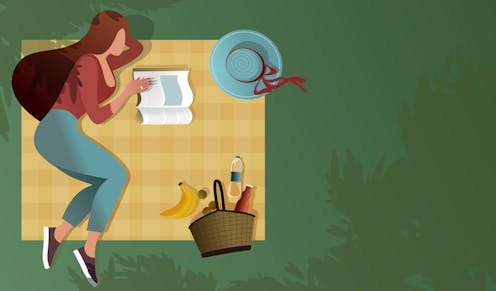
Looking to expand your horizons this summer? We’ve asked our experts to review some of the biggest non-fiction books released this year so far. There are books to expand your knowledge of environmental collapse, others that will give you an insight into the work and lives of creatives like artist Leonora Carrington and actor Elliot Page, and books that offer advice on living better.
1. Surreal Spaces: The Life and Art of Leonora Carrington by Joanna Moorhead
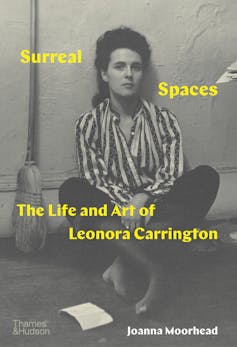
Joanna Moorhead’s study of the pioneering surrealist painter and writer Leonora Carrington (1917–2011) captures a wave of fascination for surrealist women artists. Carrington’s zest, her intellectual curiosity and her defiant pursuit of personal autonomy and uncompromising artistic authenticity dazzle at every turn in this evocative, deeply-felt study of the spaces and places of the artist’s life and work.
An exquisite contribution to art history and visual culture studies, this cultural geography of the life and the work of the artist and author complements the work of Whitney Chadwick’s book (Women Artists and the Surrealist Movement), positioning Carrington as a seminal surrealist and celebrating a remarkable life in art and ideas.
Reviewed by Susan Harrow
Read more: Six must-read summer fiction books – reviewed by our experts
2. Your Future Self: How to Make Tomorrow Better Today by Hal Hershfield
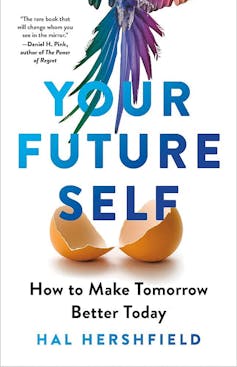
Hal Hershfield’s well-researched and fascinating book has strong echoes of the practice of “horizon scanning”. Particularly, that it is important to avoid transplanting who and what we are now into the future, but instead to consider the context of the future. Hershfield suggests not just thinking of ourselves as wrinkly, older versions of who we are now, but as people who have taken a full journey of time and experience.
Hershfield explains that we often view our future selves as strangers and are consequently prone to making decisions against our own long-term interests. He gives excellent examples of how we can improve our decision-making through visualisation and by writing to and from our future selves to refine our choices.
Hershfield recommends that we instead attend to the needs and wants of our contemporary selves, so we are not mortgaging ourselves to our futures. Your Future Self includes curated highlights at the end of each chapter to drive home the key lessons. A well-balanced and thought-provoking book.
Reviewed by Robert Dover
3. Pageboy by Elliot Page
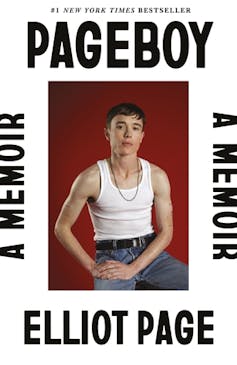
The new memoir from actor Elliot Page’s (best known for Juno and The Umbrella Academy) explores his experiences of queerness, gender and stardom. Page’s honest and vulnerable text includes insights into his complicated childhood in Nova Scotia, his early closeted queerness and his recent gender transition.
The book is poignantly raw, but Page also offers gentle levity through his encounters with love and sex. In places, Page links his difficulties to the broader transphobic narratives that are harming trans people across the world. In contextualising his stories as part of a wider social current, Page’s work becomes doubly compelling.
Page is reflexive in acknowledging some of his privileges as a white celebrity with greater access to financial security. Alongside this, he is mindful in quietly recognising ongoing and historical LGBTQ+ activism, making this a remarkable memoir – honest, engaging, melancholic, yet heartening.
Reviewed by Rosie Nelson
4. The Earth Transformed by Peter Frankopan
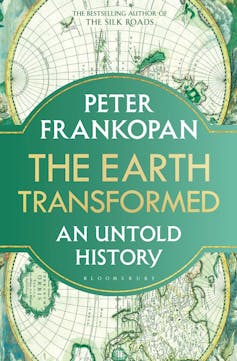
The Earth Transformed traces humanity’s relationship with the environment from the planet’s earliest life to the present day. The focus is on societies that build cities and support them with intensive agriculture, modifying their environments in the process. Through this lens, the book charts how responses to environmental challenges are generally shaped by political factors.
Human progress, it seems, is largely a scaling up of the same flawed approaches of governments, while, over millennia, voices speak against the exploitation of nature, but never achieve a lasting victory.
Frankopan synthesises a large, interesting body of research to tell a story of crucial importance for today’s world. What’s missing is a penetrating analysis of the forces that have held (some) humans to this course and how to escape them. His discomfort with environmental factors as historical agents means that the book sometimes undersells the potential of these approaches to rewrite the story of past and future.
However, the book will give readers plenty to think about and many new insights into how we’ve got to where we are.
Reviewed by Amanda Power
5. The Human Mind: A Brief Tour of Everything We Know by Paul Bloom
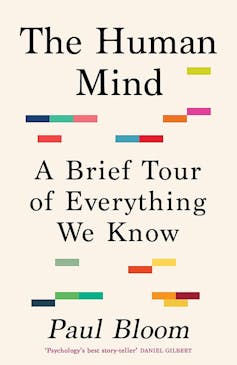
This book is a flashback to my undergraduate psychology classes, where we learned about B.F. Skinner’s behaviourism, Jean Piaget’s stages of development and Sigmund Freud’s unconscious mind. It is an excellent book for anyone who wants a brief tour, as the title suggest, of these important basic concepts in psychology.
The book offers readers examples of these psychological concepts set in the contemporary world. Bloom uses Pokemon to describe parents’ influence on their children, discusses biases through eBay and gives an example of living in a penthouse in Manhattan as a metaphor for a cognitive map. His stories are sometimes surprising and made me laugh out loud, which made this book enjoyable to read.
At the same time, I would have liked to see more up-to-date research in the book, especially in the context of positive psychology, which is my specialism. In a happiness chapter, we get a reductionist perspective on wellbeing, which can be misleading to readers. Overall, however, a very enjoyable read.
Reviewed by Jolanta Burke

Looking for something good? Cut through the noise with a carefully curated selection of the latest releases, live events and exhibitions, straight to your inbox every fortnight, on Fridays. Sign up here.
The authors do not work for, consult, own shares in or receive funding from any company or organisation that would benefit from this article, and have disclosed no relevant affiliations beyond their academic appointment.
This article was originally published on The Conversation. Read the original article.







